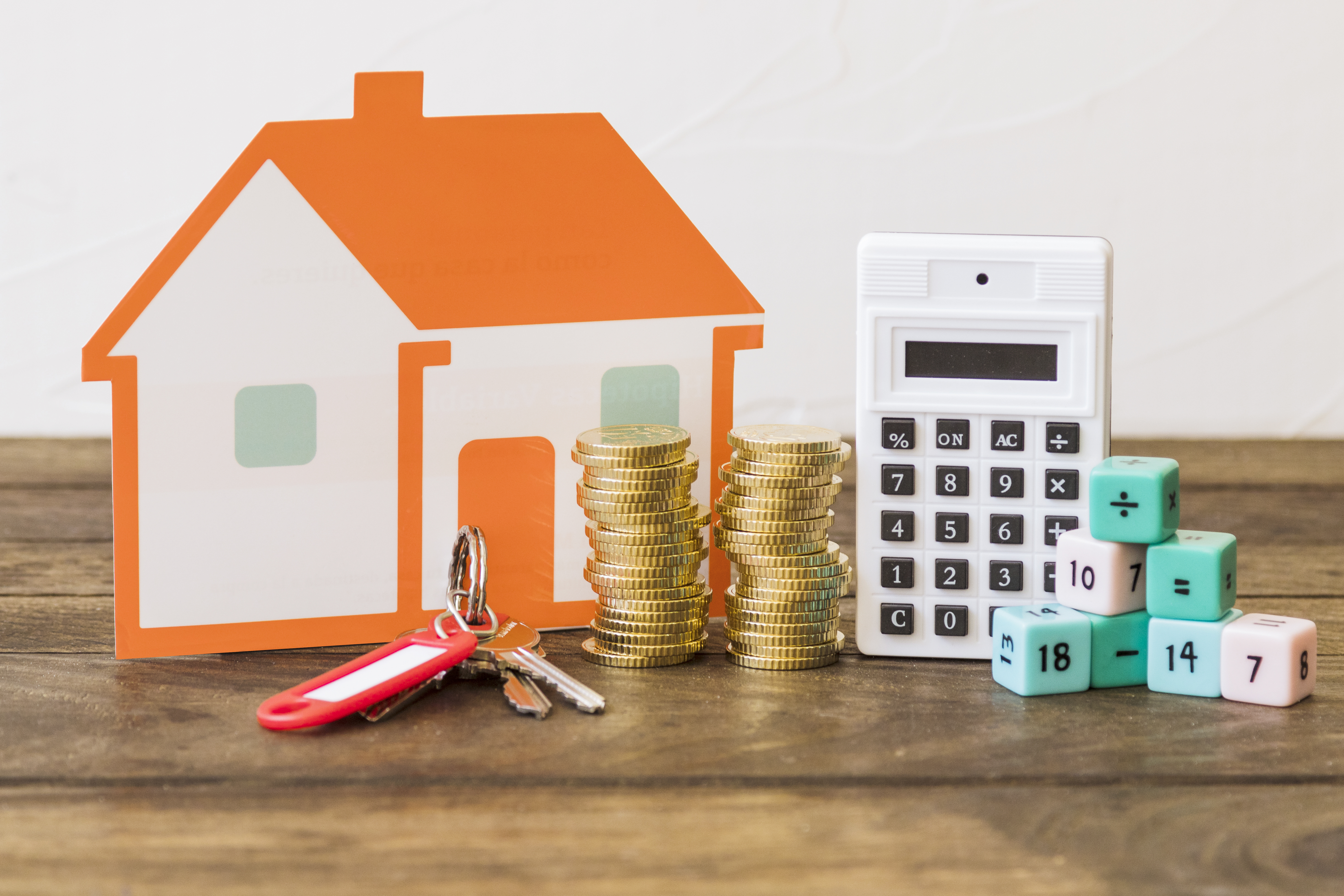Komal Vij
Enrich Mortgage Group
Contact Info:
About
Languages:

Mortgage Services
Purchase Plus Improvement Mort
Mortgage For Self-Employed In
Mortgage Renewal Solutions
First-Time Buyer Mortgages
Mortgage Preapproval
Newcomer Mortgage Guide
Explore Our Services
Preview Our Rates
Access all your mortgage options with just one application. Preview today's rates first:

Blog

Canada’s New Mortgage Rules
February 02, 2025

The Canadian government aims to make home ownership easier for first-time buyers with new mortgage rules effective December 15th 2024.
New price cap targets improved affordability.
Canadian home buyers offering a down payment of less than 20 per cent of the home purchase price less than $1 million must buy mortgage default insurance and have to put at least 20% for a property priced $1 million or more.
Starting December 15, the federal government has raised the price cap for insured mortgages to $1.5 million from $1 million. Canada’s minimum down payment structure will remain unchanged, allowing buyers to put down $75,000 on a million-dollar home instead of the current $200,000 requirement.
For example:
- Property purchase price - $1 million
Minimum required down payment - $200,000
Starting 15th December:
- Property purchase price - $1 million
Minimum required down payment - $75,000
Expanded access to 30-year mortgages
Another change allows first-time home buyers with insured mortgages, and those purchasing newly built homes, to extend their loan term to 30 years instead of 25. This reduces monthly payments but increases total interest costs over the mortgage’s lifespan.
Mortgage amortization is the process of gradually paying off a home loan through regular payments over a set period, typically in monthly installments. Each payment covers both interest and a portion of the principal (the original loan amount). Over time, as the principal decreases, a larger share of each payment goes toward reducing the loan balance.
Mortgages are typically repaid over 25 years, but a 30-year option reduces monthly payments. Previously, buyers with less than 20% down were limited to 25-year terms.
Who qualify as a first time home buyer in Canada?
- You've never purchased a home before
- You haven't lived in a home that you or your current spouse or common-law partner owned in the last four years
- You've recently experienced the breakdown of a marriage or common-law partnership
Canadians choosing a 30-year amortization will pay more in interest over time compared to a 25-year mortgage.
Mortgage stress test changes for renewals
Since 2018, Canadian homebuyers must pass a mortgage stress test proving they can afford higher rates. Under new rules now, switching to a new lender with the same loan and amortization won’t require a new stress test, known as a straight switch.
What is a Mortgage Renewal?
When you take out a mortgage, you agree to a term—the length of time you’ll commit to the lender under specific conditions, like the interest rate. Once that term ends, if you still owe money on your home loan, you’ll need to renew the mortgage. This process is known as a mortgage renewal. It allows you to:
- Continue with your current lender, or
- Shop around for better terms with a new lender.
Renewing your mortgage is a chance to reassess your financial situation and possibly save money by securing a better interest rate or adjusting your payment terms. A straight switch is when a homeowner renews their mortgage with a new lender, keeping the same loan amount and amortization schedule.
The mortgage stress test requires buyers to qualify at 5.25% or 2% above their mortgage rate, whichever is higher, to protect against payment difficulties if interest rates rise.
https://www.canada.ca/en/financial-consumer-agency/services/mortgages/renew-mortgage.html
What do the experts say?
Experts believe these changes will create more opportunities for buyers. The 30-year mortgage option, in particular, could improve affordability for those previously limited by the 25-year term. However, they cautioned that longer amortizations could result in higher interest payments unless borrowers adopt strategies like bi-weekly payments or extra contributions.
However, not all are convinced the changes will improve housing affordability. John Pasalis, president of Realosophy, warned that the reforms could lead to short term home price inflation.
CIBC economist Benjamin Tal suggested additional measures could be announced soon, as housing affordability remains a politically sensitive issue.
In conclusion, while the new mortgage rules offer greater flexibility and potential affordability for buyers, it's important for home buyers to carefully consider the long-term impact of extended amortization periods. By weighing the benefits of lower monthly payments against the higher interest costs over time, buyers can make more informed decisions to suit their financial goals. With these changes, the Canadian housing market may become more accessible, but thoughtful planning remains key.
Phone: 780-233-8500 Email: komalvijmortgage@gmail.com
Book Online: https://calendly.com/komalckvij/mortgageconsultation

The Importance and Essential Tips to Create a Budget
February 02, 2025

Creating and sticking to a budget is a fundamental aspect of personal finance management. Regardless of where you live, having a budget in place can provide financial stability, help achieve financial goals, and reduce stress. Lets understand the importance of budgeting and essential tips to create an effective budget that suits your financial needs.
A budget not only provides direction but also empowers you to make informed decisions and achieve your financial goals.
Importance of Budgeting
- Achieving Financial Goals: A well-structured budget acts as a roadmap towards achieving your short-term and long-term financial goals. Whether it's saving for a down payment on a home, paying off student loans, or planning for retirement, a budget helps allocate resources and track progress.
- Managing Expenses: Budgeting allows you to have a clear understanding of your income and expenses. By identifying your fixed expenses (rent, utilities, etc.) and variable expenses (groceries, entertainment, etc.), you can prioritize your spending and make informed decisions about where to cut back or save.
- Debt Management: A budget helps you allocate funds towards debt repayment and avoid accumulating additional debt, leading to financial freedom and improved creditworthiness.
- Emergency Preparedness: Unforeseen circumstances like medical emergencies or job loss can disrupt your finances. A budget with an emergency fund ensures you have a safety net to cover unexpected expenses and prevents you from falling into debt during challenging times.
- Financial Clarity and Awareness: A budget acts as a financial blueprint, offering a comprehensive overview of your income, expenses, and savings. It brings clarity to your financial situation, allowing you to understand where your money comes from and where it goes.
- Goal Setting and Achievement: A well-crafted budget serves as a tool for setting and achieving financial goals. Whether it's saving for a dream vacation, purchasing a home, or retiring comfortably, a budget provides the framework to make these aspirations a reality.- Setting SMART goals (Specific, Measurable, Achievable, Relevant, and Time-bound) within your budget ensures a focused and realistic approach to financial success.
Budgeting helps you reduce the risk of accumulating debt, ensuring that your financial foundation remains strong.
https://www.canada.ca/en/financial-consumer-agency/services/make-budget.html
Tips to Create an Effective Budget
1. Assess Your Financial Landscape:
- Begin by evaluating your current financial status, including income, expenses, assets, and debts. Understanding your financial landscape allows you to make informed decisions and identify areas where adjustments can be made.
2. Categorize Your Expenses:
- Divide your expenses into fixed and variable categories. Fixed expenses include rent or mortgage payments, utilities, and insurance, while variable expenses encompass groceries, entertainment, and discretionary spending. Prioritize essential expenses to ensure that your basic needs are met before allocating funds to non-essential items.
3. Set Realistic Financial Goals:
- Establish both short-term and long-term financial goals that align with your priorities. These goals serve as the driving force behind your budgeting efforts. Ensure that your goals are realistic and achievable, considering your current income and expenses. Periodically review and adjust them as your financial situation evolves.
4. Create a Detailed Monthly Budget:
- Utilize budgeting tools or apps to create a comprehensive monthly budget. Include all sources of income and allocate specific amounts to each expense category. A well-structured budget provides a roadmap for your financial month, guiding your spending and saving decisions.
5. Prioritize Emergency Fund and Savings:
- Allocate a portion of your income to build an emergency fund. This fund acts as a financial safety net, covering unforeseen expenses and preventing financial setbacks during emergencies. Additionally, allocate funds to savings for both short-term and long-term goals, such as buying a home, starting a business, or funding your child's education.
6. Monitor and Adjust Regularly:
- Regularly monitor your spending against your budget to identify any discrepancies or areas for improvement. Consistent oversight ensures that you stay on track with your financial goals. Be flexible and willing to adjust your budget as needed, especially when facing changes in income, expenses, or financial priorities.
https://itools-ioutils.fcac-acfc.gc.ca/FGC-COF/home-accueil-eng.aspx
7. Debt Management and Repayment:
- Include a strategy for debt management within your budget. Prioritize high-interest debts while making minimum payments on others. As you successfully pay off debts, reallocate those funds to savings or other financial goals, accelerating your journey towards financial freedom.
Creating a budget is not merely a financial task; it's a powerful tool that can transform your relationship with money
Creating and maintaining a budget is an essential step towards achieving financial stability and reaching your goals. By understanding the significance of budgeting and implementing the tips mentioned above, you can take control of your finances, reduce stress, and work towards a more secure financial future.
Remember, creating a budget is a dynamic process, and it requires commitment, discipline, and regular evaluation to ensure its effectiveness.
Start your journey to financial empowerment today by crafting a budget tailored to your unique needs and aspirations.
Phone: 780-233-8500 Email: komalvijmortgage@gmail.com
Book Online: https://calendly.com/komalckvij/mortgageconsultation

Why Every Homeowner Needs an Annual Mortgage Check-Up?
February 02, 2025

Unlock Savings and Financial Peace with a Free Mortgage Check-Up!
Owning a home is a significant financial commitment, and your mortgage plays a central role in your financial well-being. That’s why a annual mortgage check-up is essential for homeowners who want to ensure their mortgage aligns with their goals and that they’re not paying more than they need to. Whether you’re looking to reduce your payments, explore refinancing options, or prepare for a renewal, a mortgage check-up offers valuable insights.
If you’re a homeowner and searching for “mortgage check-up near me," this guide is for you. I’m Komal Vij, an experienced mortgage broker with five years of helping homeowners make informed decisions about their mortgages. Let’s explore why every homeowner should consider a free mortgage review for homeowners, what’s involved, and how it can benefit you.
What Is a Mortgage Check-Up?
A mortgage check-up is a comprehensive review of your current mortgage. It’s a way to assess whether your mortgage still meets your needs or if adjustments could help you save money or better align with your financial goals. By conducting a mortgage check-up, you gain clarity about your options, including opportunities to:
- Lower your payments
- Secure a better interest rate
- Refinance to access equity
- Adjust your payment schedule
Unlike a mortgage renewal, which occurs when your mortgage term ends, a mortgage check-up can be done anytime during your term.
Life events, like career changes or family growth, may impact your financial situation. Annual checkups ensure your mortgage aligns with your evolving priorities.
What Is the Difference Between a Mortgage Renewal and a Mortgage Check-Up?
- Mortgage Renewal: Happens when your current mortgage term expires. You either renew with your existing lender or switch to a new one. This process focuses on securing a new rate and term but doesn’t typically involve a detailed review of your overall financial goals.
- Mortgage Check-Up: Can be done at any time during your mortgage term. It’s a proactive review to ensure your mortgage is aligned with your financial goals. It’s not tied to your renewal date and often uncovers opportunities for better rates, refinancing, or adjustments.
Why Is a Mortgage Check-Up Important?
Your financial situation and goals can change over time. A free mortgage check-up in Edmonton ensures that your mortgage adapts to these changes. Here’s why it’s essential:
1. Find the Best Mortgage Rates
Interest rates change frequently. A check-up can identify if you qualify for a lower rate, which could save you thousands over the life of your mortgage.
2. Lower Mortgage Payments
If your monthly payments feel overwhelming, a mortgage check-up can explore options to reduce them, such as extending your amortization period or finding a lower rate.
3. Prepare for Renewal
A mortgage renewal check-up for homeowners allows you to compare options and avoid automatically accepting terms that may not be ideal.
4. Refinance to Access Equity
If you’ve built equity in your home, a mortgage check-up can help you explore refinancing options to fund renovations, consolidate debt, or invest.
5. Align with Financial Goals
Whether you want to pay off your mortgage faster or free up cash flow for other priorities, a check-up ensures your mortgage supports your goals.
Regularly reviewing your mortgage allows you to identify opportunities for refinancing at a lower interest rate or more favorable terms.

When Is the Best Time to Do a Mortgage Check-Up?
You might wonder, “When is the best time to do a mortgage check-up?” While you can do a check-up at any time, here are some key moments to consider:
- 6–12 months before your mortgage renewal: This gives you time to explore better rates or switch lenders.
- After a major life event: Changes like a new job, having children, or unexpected expenses can affect your financial priorities.
- When interest rates drop: Take advantage of lower rates before your current term ends.
- When your financial goals change: If you’re planning for retirement, buying another property, or investing, a check-up ensures your mortgage supports these plans.
How Do I Know If I Need a Mortgage Check-Up?
Here are some signs it’s time for a mortgage check-up Edmonton advice:
- Your financial situation has changed (e.g., higher income or new expenses).
- You’re struggling with monthly payments.
- You’re nearing the end of your mortgage term.
- You’re considering refinancing or consolidating debt.
- You haven’t reviewed your mortgage in over a year.
An annual checkup keeps you informed about mortgage regulations and local real estate market conditions.
How Often Should You Do a Mortgage Check-Up?
I recommend a homeowner mortgage check-up near me every 1–3 years or whenever there’s a significant change in your financial situation. Regular reviews ensure you’re not missing opportunities to save money or improve your financial position.
What Happens in a Mortgage Check-Up?
During a mortgage check-up, I’ll:
- Review Your Current Mortgage: We’ll assess your interest rate, payment schedule, and term.
- Analyze Your Financial Goals: I’ll ask about your goals and any changes in your financial situation.
- Provide Expert Advice: I’ll share tailored recommendations, such as refinancing or switching to a better product.
- Explore New Options: Together, we’ll explore options to save money, adjust payments, or access equity.
- Answer Your Questions: You’ll have the opportunity to ask about rates, penalties, and strategies to optimize your mortgage.
What Documents Do I Need for a Mortgage Check-Up?
To make the process smoother, gather these documents:
- Mortgage statement: Shows your balance, rate, and payment schedule.
- Proof of income: Recent pay stubs or tax returns.
- Property tax statement: Helps verify your home’s value.
- List of debts: Include credit cards, car loans, or other obligations.
What Questions Should I Ask During a Mortgage Check-Up?
To get the most out of your check-up, ask questions like:
- Can I lower my payments without extending my term?
- What are the benefits of switching lenders or refinancing?
- How can I pay off my mortgage faster?
- Are there penalties for making changes to my mortgage?
- What new mortgage products are available?
Your mortgage is one of the most significant financial commitments you’ll make, so it’s worth reviewing regularly. A free mortgage check-up in Edmonton can help you lower payments, find better rates, or ensure your mortgage aligns with your financial goals.
As an experienced mortgage broker, I’m here to provide expert mortgage check-up advice tailored to your needs. Let’s work together to explore your options and ensure your mortgage works for you.
Contact today for a free mortgage review for homeowners. Let’s make sure your mortgage is the perfect fit for your financial future.
Ready to get started?
Phone: 780-233-8500 Email: komalvijmortgage@gmail.com
Book Online: https://calendly.com/komalckvij/mortgageconsultation

First-Time Homebuyer Guide for 2025: Steps to Secure Your Dream Home
February 02, 2025
Welcome to your first step toward homeownership!

Buying your first home is exciting but can also feel overwhelming. With this First-time Homebuyer Guide 2025, I’ll walk you through every step to make your journey smooth and stress-free.
Let’s get started!
Step 1: Understand Your Budget
Before house hunting, you need to know what you can afford. Create a budget by reviewing your income, expenses, and savings. Be realistic and include costs like:
- Down payment (minimum 5% for homes under $500,000 in Canada).
- Closing costs (typically 1.5% to 4% of the purchase price).
- Moving expenses and ongoing costs like utilities and maintenance.
Budgeting Tip: Use online calculators to estimate your monthly payments. If you’re unsure, let’s chat! I, Komal Vij, can guide you through budgeting for your first home in Edmonton.
https://yourmortgagemarket.com/en/Mortgage-Market/Landing-Page-en?leadDealId=TMAC&brokerCode=960892
Step 2: Get Pre-approved for a Mortgage
How to get pre-approved for a mortgage in Edmonton?
A mortgage pre-approval tells you how much you can borrow and shows sellers you’re serious. To get pre-approved:
- Gather documents like proof of income, credit report, and ID.
- Contact a mortgage broker (like me!) to compare mortgage options in Edmonton, including mortgage rates Edmonton January 2025.
Local Tip: Getting pre-approved ensures you’re ready to act quickly in Edmonton’s competitive market.
Buying your first home in Edmonton doesn’t have to be complicated, we are here to guide you through the process.
https://www.canada.ca/en/financial-consumer-agency/services/buying-home.html
Step 3: Research home buying programs and incentives
The Government of Canada offers home buying programs and incentives for homebuyers. These can help you purchase your home. The programs and incentives include the following:
The Home buyers’ amount
You may be eligible to receive a non-refundable tax credit of up to $1,500.
GST/HST new housing rebates
You may be eligible for a rebate for some of the tax you pay when buying your home.
The Home Buyers’ Plan (HBP)
You may withdraw up to $35,000 from your registered retirement savings plan (RRSP) tax-free to buy your first home.
Budget 2024 increased the HBP withdrawal limit from $35,000 to $60,000. This limit applies to withdrawals made after April 16, 2024.
Learn more about these home buying programs and find out if you’re eligible.
The First Home Savings Account (FHSA)
You may be eligible to save up to $40,000 tax-free to buy a home with an annual contribution limit of $8,000.
Step 4: Make a Wish List
What do you need in your first home? Consider:
- Location (schools, work commute, neighborhood, amenities).
- Size (number of bedrooms, bathrooms, and yard size).
- Future needs (room to grow or space for hobbies).
Keep your budget in mind and prioritize your needs versus wants.
Step 5: Hire the Right Professionals
Buying a home involves several experts. Here’s who you’ll need:
- Mortgage Broker: To secure the best financing options.
- Realtor: To help you find the perfect home and negotiate offers.
- Home Inspector: To ensure the property is in good condition.
- Lawyer: To handle the legal process to buy a home in Alberta.

Step 6: Start House Hunting
Now comes the fun part! Work with your realtor to find homes in Edmonton within your budget.
Step 7: Make an Offer
Once you find the perfect home, your realtor will help you draft an offer. The offer includes:
- Purchase price.
- Conditions (e.g., financing approval or home inspection).
- Closing date.
Step 8: Conduct a Home Inspection
Home inspection tips in Edmonton:
- Hire a reputable inspector.
- Attend the inspection to ask questions.
- Focus on major systems (roof, plumbing, foundation).
If the inspection reveals issues, you can renegotiate or walk away.
Step 9: Finalize Your Mortgage
After the offer is accepted, your mortgage broker finalizes the loan. This step involves:
- Providing updated financial documents.
- Confirming your down payment and insurance requirements.
Step 10: Close the Deal
The final step is closing day. Your lawyer will ensure all legal documents are signed, and funds are transferred. Once complete, you’ll get the keys to your new home!
FAQs: Edmonton Home Buying Made Easy
What are the steps to buy a house in Edmonton as a first-time buyer?
- Set a budget.
- Get pre-approved for a mortgage.
- Research grants and incentives.
- Find a realtor.
- House hunt and make an offer.
- Close the deal with a lawyer.
How do I start the home-buying process in Edmonton?
Start by contacting a mortgage broker (like me) to explore your financing options and get pre-approved.
What do I need to know before buying my first home in Edmonton?
Understand your budget, research incentives, and hire experienced professionals to guide you.
How long does it take to buy a home in Edmonton?
The process typically takes 2-4 months, depending on the market and your preparation.
What are common mistakes first-time homebuyers make in Edmonton?
- Not getting pre-approved.
- Overlooking hidden costs.
- Skipping the home inspection.
Buying your first home in Edmonton should not be complicated, as we are here to guide you through the whole home buying process.
Ready to start your journey? Let’s make your dream of homeownership a reality.
Phone: 780-233-8500 Email: komalvijmortgage@gmail.com
Book Online: https://calendly.com/komalckvij/mortgageconsultation
Why use a Mortgage Broker:
https://www.youtube.com/watch?v=gRemw_R21AI
Download Your Free Home Buyer's Guide:

Stay Connected
Subscribe to our Newsletter and you'll stay up to date on rates that help you save thousands in interest.

